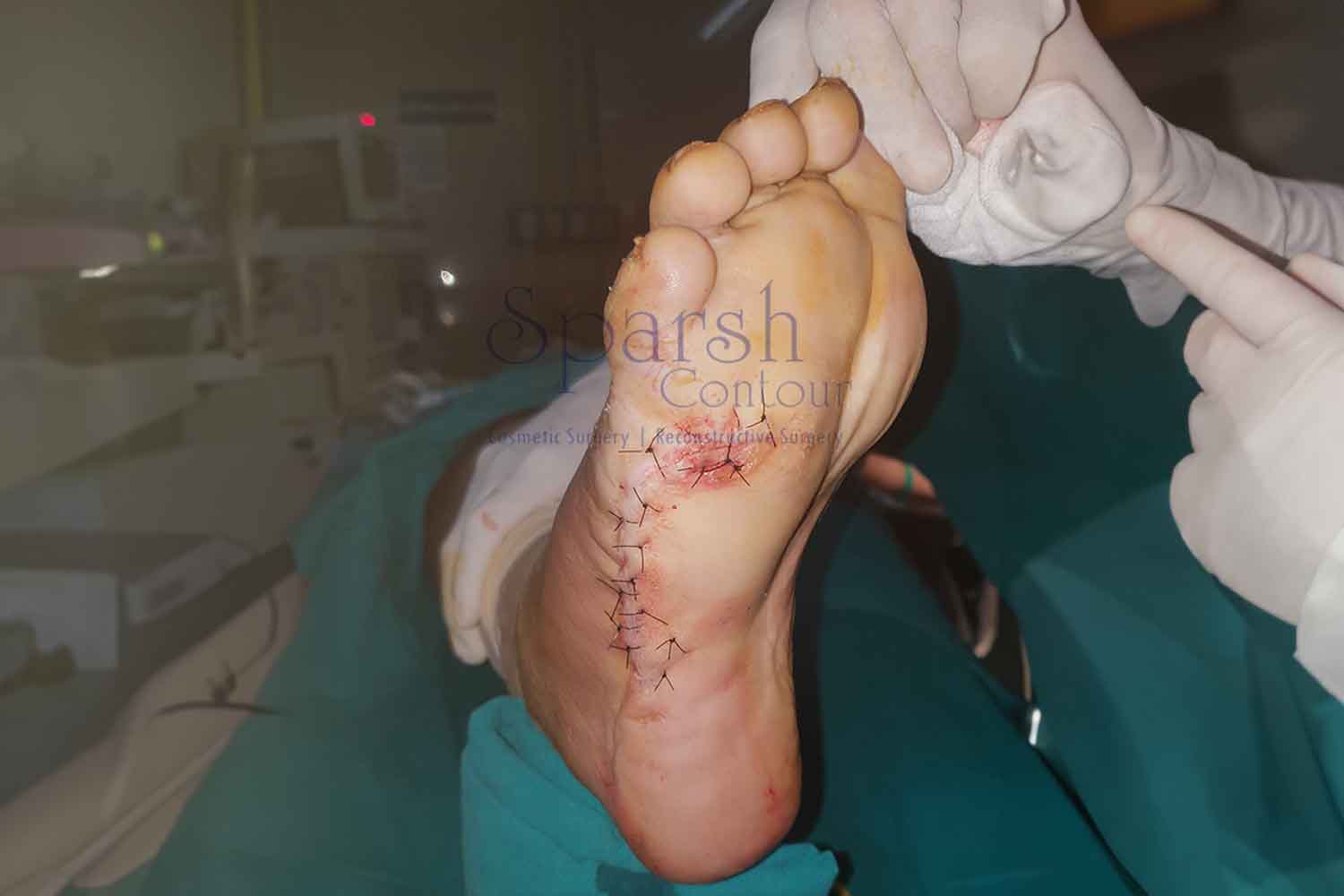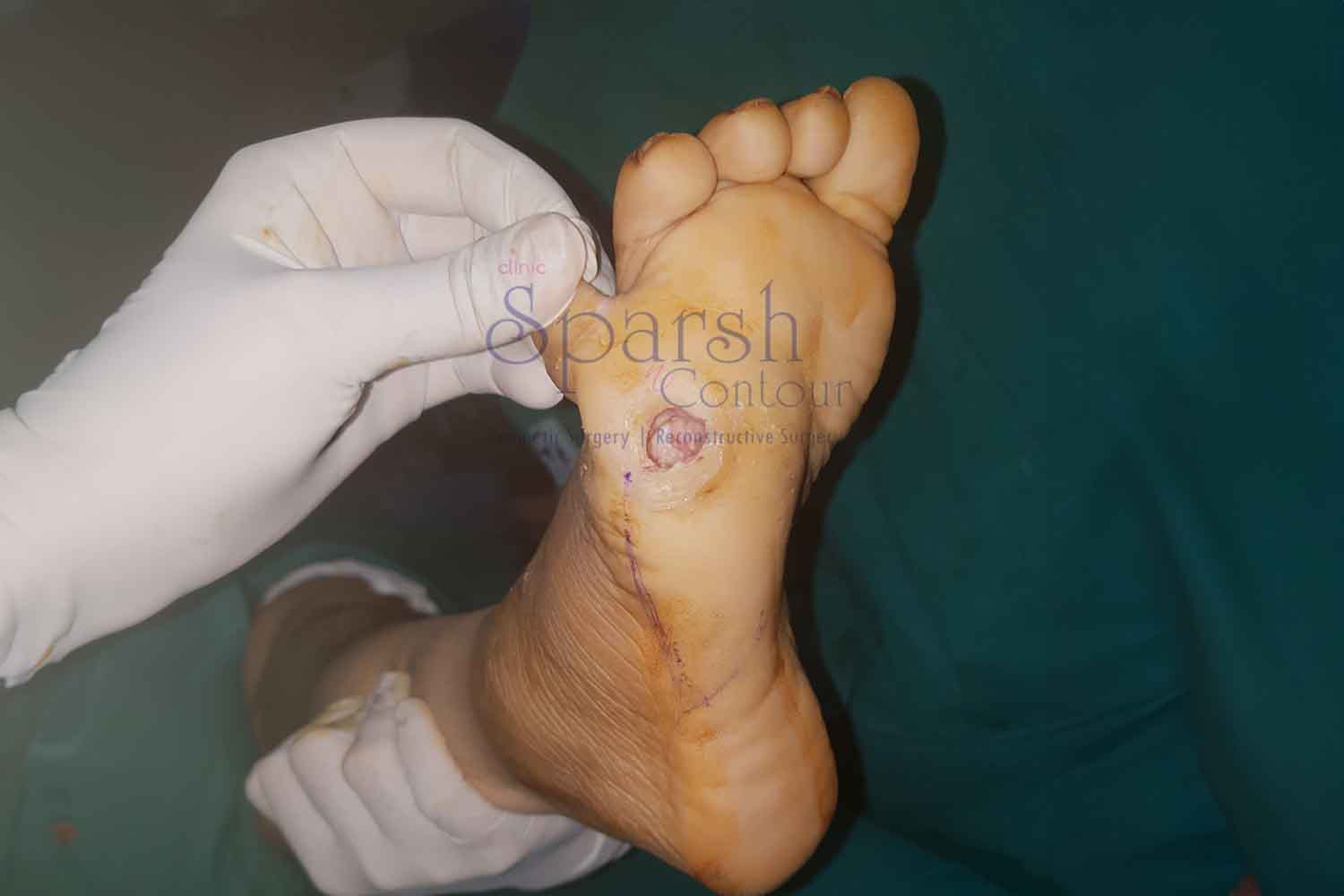Reconstruction Surgeries
Diabetic Foot Management
Unattended diabetic foot problems can escalate quickly, leading to severe infections, tissue damage, and loss of function. Diabetic foot management is a specialized approach to preventing, treating, and reconstructing complications caused by diabetes in the feet. Chronic diabetes can lead to nerve damage (neuropathy), poor blood circulation, and an increased risk of foot ulcers, infections, and even amputations. Dr. Sushil Nahar, a renowned plastic surgeon, offers advanced solutions for diabetic foot care, helping patients manage complex conditions effectively and regain mobility and confidence.
Dr. Sushil Nahar focuses on early intervention, utilizing state-of-the-art techniques to address issues such as deep ulcers, gangrene, or deformities. A critical aspect of diabetic foot management is preserving limb functionality and preventing amputations. Dr. Sushil Nahar works closely with patients to identify potential problems early and provide comprehensive care plans. His personalized approach ensures that treatment is tailored to the patient’s specific needs, addressing both immediate concerns and long-term health goals.
For patients with advanced diabetic foot conditions, Dr. Sushil Nahar’s surgical expertise provides a lifeline to recovery.
Dr. Sushil Nahar focuses on early intervention, utilizing state-of-the-art techniques to address issues such as deep ulcers, gangrene, or deformities. A critical aspect of diabetic foot management is preserving limb functionality and preventing amputations. Dr. Sushil Nahar works closely with patients to identify potential problems early and provide comprehensive care plans. His personalized approach ensures that treatment is tailored to the patient’s specific needs, addressing both immediate concerns and long-term health goals.
For patients with advanced diabetic foot conditions, Dr. Sushil Nahar’s surgical expertise provides a lifeline to recovery.
 After
After  Before
Before Drag
Reconstruction Surgeries
Why Diabetic Foot Management is needed?
- Repairs Tissue Damage: Plastic surgeons can reconstruct damaged skin, muscles, and tissues, improving the foot’s appearance and function.
- Prevents Amputations: Specialized care reduces the risk of severe infections and tissue loss, avoiding the need for limb amputation.
- Improves Blood Circulation: Surgical interventions restore blood flow, preventing further complications and promoting healthy tissue growth.
- Addresses Structural Deformities: Treats deformities like Charcot foot or collapsed arches caused by diabetes.
our expert answers
frequently asked questions
When should I see a plastic surgeon for diabetic foot problems?
Consult a plastic surgeon if you have non-healing ulcers, severe infections, visible deformities, or tissue damage requiring surgical intervention.
Is diabetic foot surgery painful?
Surgery is performed under anesthesia, so there is no pain during the procedure. Postoperative discomfort is managed with medications.
How long does it take to recover from diabetic foot surgery?
Recovery depends on the severity of the condition and the procedure performed, typically ranging from a few weeks to several months.
How can I prevent diabetic foot complications?
Regular foot inspections, wearing proper footwear, managing blood sugar levels, and seeking timely medical care help prevent complications.
How often should I have my feet checked if I have diabetes?
Regular foot exams are recommended at least once a year or more frequently if you have a history of foot ulcers or complications.
APPOINTMENT
